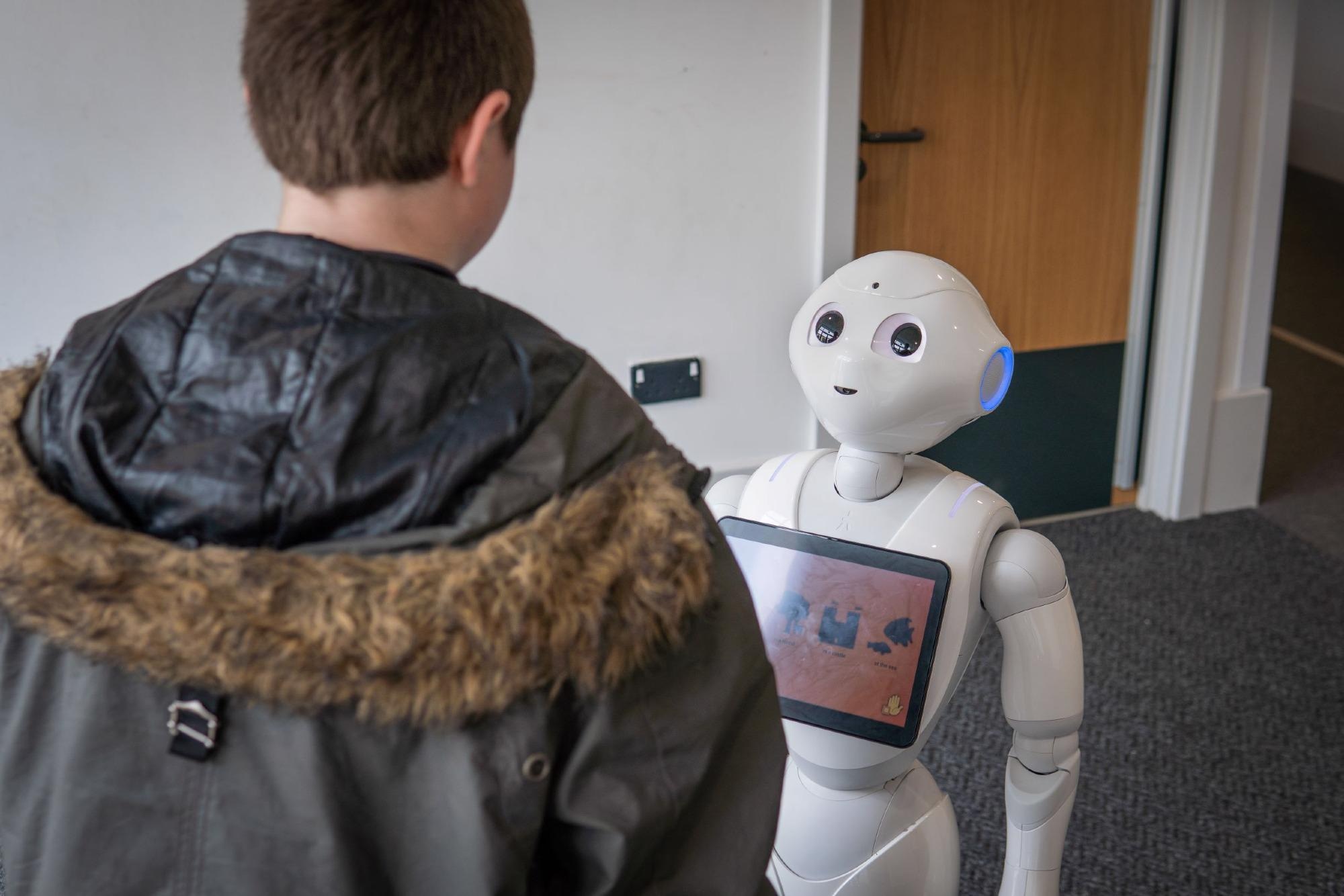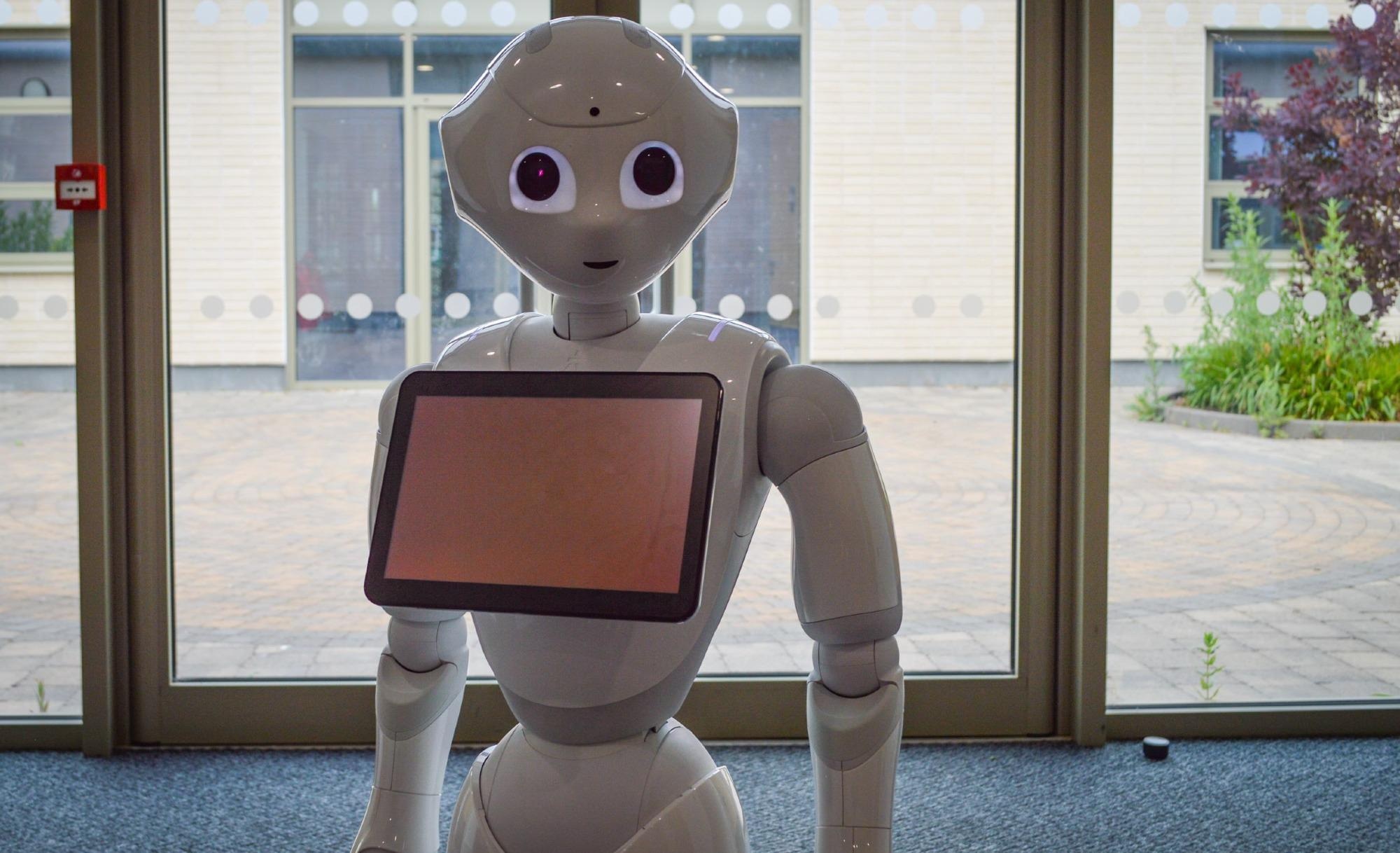Jun 25 2021
A socially intelligent robot is lending a helping hand to pupils at a special needs school in Somerset, England, as part of a project led by the University of the West of England (UWE Bristol) researchers.

The robot, known as Pepper, is currently based at The Mendip School near Shepton Mallet where it is supporting autistic pupils aged 12 to 19 with their wellbeing and emotions over a three-week period.
Programmed at the Bristol Robotics Laboratory, Pepper can take part in a range of social and physical activities with children, such as story-telling, dancing, and relaxation techniques which are designed to help autistic pupils manage their emotions and wellbeing. Many autistic children can have difficulty regulating their emotions and require calming and stimulation to help them engage with school-based activities.
Activities have been co-designed in collaboration with pupils and teachers themselves. Utilizing the expertise of UWE Bristol researchers from the fields of robotics, education and architecture, the project is investigating where, when and how the robot can best support autistic pupils and teachers in a school setting.
Associate Professor in Social Robotics, Dr Severin Lemaignan, said: "The use of robots to support autistic children is not entirely new. However, while previous research has focused on teaching skills to children, our autistic participants told us this is not what they actually need. Our approach focuses instead on wellbeing and child-led interactions. Our robot lives in the school's corridors; Pepper engages with the children on their terms.’’
Once a child chooses to engage, the robot’s interface asks the child how they are feeling – sad, happy, angry, etc - and responds with appropriate activities such as tai chi, jokes and stories that are designed to support the child’s current mood and emotions.

Image Credit: UWE Bristol
Senior Lecturer in Digital Education, Dr Nigel Newbutt, said: ‘‘When we first started this project, we envisaged that the robot may well be used in a classroom, but after conducting focus groups with the pupils and their teachers, we found that they wanted to engage with the robot in a more social and informal way; in the corridors, groups room, or play areas.
“We found the focus groups to be immensely helpful to inform our project, and in fact guide it. By working with pupils and teachers we were able to place their voices centrally and co-design what Pepper would do in their school.’’
Dr Louis Rice from the Department of Architecture added: “This project isn’t about replacing people and teaching staff with robots but exploring how robot technology could be used as an additional tool by schools. Our findings will help inform how to design schools and other buildings to enable better integration of social robots, and create built environments that are more suitable for autistic people.”
Assistant Headteacher at the Mendip School, Lian Conley, said: ‘‘Since Pepper arrived at the school there has been a lot of dancing and the children have also really enjoyed the robot’s jokes. One of the great things we’ve seen already is children gathering in groups to engage with Pepper. Children who wouldn’t normally socially interact with others are now choosing to interact with their peers. It’s great to see students willing to communicate with the robot where they might struggle with adults and children, and to see them opening up their friendship groups.’’
Socially intelligent robots like Pepper cost approximately £20,000, but researchers and the school leadership believe they could be a worthwhile investment in the future. Studies have already shown that autistic people can enjoy interacting with a robot partner and that robots can be effective in helping autistic children to develop their social, communication and fine motor skills. By conducting this research project, the team at UWE Bristol hope to gather greater evidence of the benefits of robot technology in a school setting with the hope schools can consider engaging with the technology in the future. The full results of the study will be published later in the year.
Formally, autism is a lifelong developmental disability that affects how people perceive the world and interact with others. According to the National Autistic Society, approximately one in 68 people are on the autistic spectrum and there are approximately 700,000 impacted by autism in the UK. While autism impacts everyone differently, some of the most common challenges include: difficulty in communicating and understanding how others feel, anxiety in unfamiliar situations and finding stimuli like loud noises overwhelming and stressful.